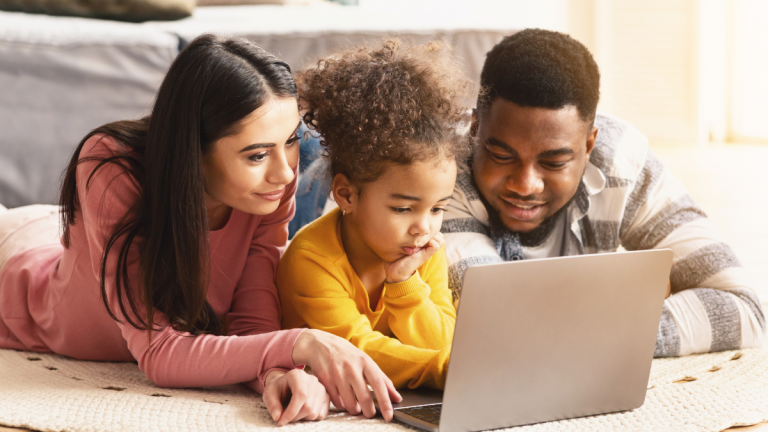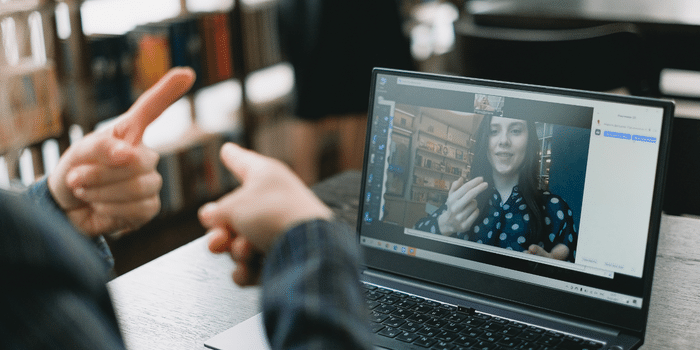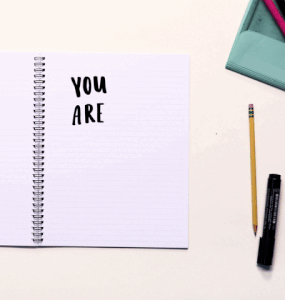Parenting(Age 5 to 8) | Jun 06, 2022
Five online activities to help students cope with COVID 19

At the height of the COVID-19 pandemic, nearly 91.3 percent of pupils worldwide were learning remotely, according to a UNESCO survey. According to the study, 194 governments around the world ordered country-wide school closures, and more than 1.3 billion pupils began their schooling in virtual classrooms.
Although this transition was welcomed by all but the toll which online learning has taken on mental health of students cannot be ignored. Teachers are worried that online classes are creating a negative impact on children’s mental health. Social anxiety among students is on an all-time high as they do not get to interact with as many people as they would in school. The rising number of anxiety cases has alarmed the parents and schools who are left with no other option but to keep online classes running as COVID-19 shows no signs of slowing down.
While social and emotional growth of students took place in schools, we must now adapt to these curriculums in an online structure. We have curated six feel-good activities for educators so that they may be able to implement them in their curriculum for enhanced activity of students. Students will respond well to these activities and will keep engaged in these uncertain times. It is a well known fact that if the mind is busy with productive yet fun projects then students will be less anxious as compared to the time when they are sitting idle and surfing the internet aimlessly.
Various forms of studies have revealed that the students who participate in fun activities at school have higher satisfaction levels, adapt to change with ease and gain a stronger coping strategy. These virtual activities can be used for improvement of students by interweaving them with the subjects that are already being taught, like English, Art, Physical Education or Home Education. Teachers can use these activities in the following three ways:-
- Shiny Beginning:- Before starting class, use the exercises to stimulate the pupils and jumpstart the learning process.
- Shiny Pause:- If the lesson reaches a pause in the middle and students are getting less engaged. Stop the lesson and begin these activities.
- Shiny Ending:- End your session on a positive note to ensure that your students are not exhausted following class.
These five activities will help students cope with the changes affected by COVID-19:-
- Similar interest groups: Encourage kids to explore their interests outside of the classroom. Make distinct heads of interests, but attempt to cover everything, such as art, sports, movies, humor, and so on. Once students have expressed an interest, divide them into groups and urge them to discuss it with one another. Make a date for their presentation and sit back and relax. Students will be able to take a break from studying traditional subjects and instead discuss their favorite themes.
- Emotion Wheel: This practice intends to help students develop emotional management methods. Students are under mental duress as a result of the COVID-19 pandemic. This activity allows participants to form anonymous groups in which they can openly discuss their feelings without fear of being judged by their peers. The Emotional Wheel will display a variety of feelings from which students can choose and then discuss the emotions they are experiencing. The school's on-campus counselor must lead these sessions.
- Online gaming: Although there is a lot of stigma involve about online gaming among parents and teachers but online gaming can prove to be a useful and fun way of passing time when children are at home. However, it is necessary that children play online games in a controlled and monitored environment. Online games can take up way too much of your child’s time if not controlled by the parents at home. Playing online games will increase your child’s focus and attention span, both of which are good qualities for a student.
- Physical exercise: With schools and gyms closed, students are often at home but that does not mean that they cannot engage in physical exercises. Maintain a schedule for your child and encourage them to do physical exercise. They can go for a walk, a run or take up a new sport. A healthy body leads to improved mental health. Also, the body releases endorphins while exercising which will in turn lead to diminished anxiety.
- Music: Music can help you relax and unwind. Music is an excellent coping tool that reduces stress levels. Students should be encouraged to listen to music of their choosing, or parents could listen alongside them. This will also promote parent-child bonding.
These activities can assist pupils in adjusting to the new situation created by the COVID-19 epidemic. When they combine these activities with their online lessons and daily routine, they will see an increase in dopamine levels and a reduction in anxiety.
Want access to expert academic guidance — for free? When you create your free Vnaya account, you will have an option to ask a Question, Book a Demo session, talk to our Academic Experts, and get Professional Parenting Support —all for Free! Our Academic Counselor will help you learn how to improve your academic performance by assessing your learning style and curating a personalized lesson plan for you!
Sign up for your Vnaya account today to get a boost on your academic quest.
















Post a Comment: